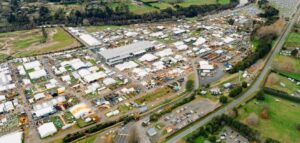Tron infrastructure not keeping up with the times
Hamiltonians deserve infrastructure that will keep up with population increase and climate change, say two prominent activists for change.
“There’s a difference between being proactive versus reactive,” said For Our Good CEO and former mayoral candidate Louise Hutt.
“In terms of things like climate change, you can’t be reactive.
“You can’t decide to do something about climate change when the half your city’s underwater.”
Hutt is the CEO of For Our Good, a social-enterprise utility platform, and is a member of the Go Eco board of trustees, Waikato’s largest community organisation dedicated to sustainability.
Throughout her campaign for mayor and the Hamilton West ward, Hutt maintained the idea that Hamiltonians, and New Zealanders, deserve more competent city infrastructure to deal with the reality of global warming.
She’s in good company with Sarah Thomson who ran her campaign for council alongside Hutt and garnered press attention when she sued the Government for an inadequate response to climate change and a failure to set adequate targets for emissions.
Recently-minted as councillor and deputy chair of the Hamilton City Council Environment Committee, Thomson said making public transport more accessible would be a good move for the city both socially and environmentally.
“It might cost society a bit more to have free or really treat public transport, but that’s going to save.
“It’s going to bring everyone a lot more value.
“As a community lawyer, I see people struggling with that debt all the time.”
Thomson said the cost of car ownership puts a lot of her clients in debt and making it easier to bike or bus to work would save their wallets and some serious CO2.
“I’m very passionate about being able to walk places safely, cycle places safely—take public transport.
“Like Louise said, doing things, which would benefit society, make it more equal.
“You know, we’ve got people who can’t [afford to] drive cars anyway.
“Having real access to alternative transport is awesome for us and better for the air that we breathe in for our health.
“So it’s an investment in actually improving lives.”




